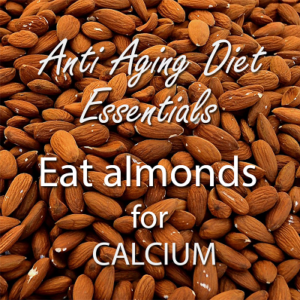 Your mother or grandmother may have told you “what you eat and drink today, walks and talks tomorrow”. If you have even a small degree of self-awareness you will have realized that certain foods can make you feel good.
Your mother or grandmother may have told you “what you eat and drink today, walks and talks tomorrow”. If you have even a small degree of self-awareness you will have realized that certain foods can make you feel good.
You will almost certainly be aware that some foods and drink can provide short-term pleasure, but there is a price to pay tomorrow and beyond.
From recognizing that some foods you consume are not in the best interest of your health, it is no big reach to realize that whatever you put on your plate, every meal, can greatly influence how you look as you age.
Regular exercise is important, but it is increasingly recognized that diet is the single most crucial thing to be considered if you want to feel healthy, look healthy and live genuinely healthy as years go by.
Below are some of the most important things to keep in mind when making your anti aging diet plan. This will help ensure that you remain in your best health and as much as possible, slow down the aging process.
Vitamin D
Research shows that adults who have the lowest levels of vitamin D are two times more at risk of dying from any disease compared to people who have adequate levels of vitamin D in their body. Data from scientific research also shows that getting enough vitamin D affords a lower risk of obesity, heart disease, type 2 diabetes, depression, high blood pressure, brain disorders and cancer.
Vitamin D is essential for improving the immune system, muscle functioning and for preventing bone health problems. Getting sufficient sunlight exposure is the best way to trigger the production of vitamin D in your body. Where possible get your solar exposure early in the day, before the hours that burn.
Make sure as well to eat foods that contain vitamin D such as wild salmon and egg yolks. Other sources of vitamin D include Portobello mushrooms, oily fish and cod liver oil.
Calcium
An individual’s bone density reduces at a rapid rate once they reach the age of 50. Women who reach this age are more likely to experience a bone fracture, especially after menopause when their bone mass reduces from 3 to 5 per cent every year.
Everybody knows we need calcium to build better bones. It is also necessary for muscle contractions and nerve functions. Calcium is also needed by your body to be able to maintain its level of acidity.
Unfortunately, simply increasing intake of calcium will not be sufficient to offset loss of bone mass as we age, experts say. Calcium is of little benefit if other critical bone-forming elements are not present, particularly magnesium and vitamin D.
Keeping your vitamin and mineral levels balanced is far more beneficial than swamping your system with mega-loads of calcium, as this will suppress the actions of other critical elements.
Also, unless some weight-bearing exercise, such as standing or walking is undertaken, the body will put little effort into bone growth, regardless of supplementation levels.
Be cautious of taking excessive calcium supplements because too much calcium in the body can increase your risk of suffering from heart disease and kidney stones. The safest and healthiest way to obtain calcium is through dietary sources.
Contrary to popular belief, dairy is not the only or even best way to get the calcium your body needs. Foods that are excellent sources of calcium include dark leafy greens, oysters, sesame seeds and almonds.
Probiotics
Many people have overlooked the importance of probiotics in their quest for optimal health. Probiotics play a crucial role in gut health and having enough of them inside our body will help boost our immunity, skin health, lower the levels of bad cholesterol and improve digestive health. They are also beneficial for fighting against gum disease and for better weight control.
Luckily, yogurt is not the only source of these probiotics. You can also get it from drinking kombucha tea or any other fermented tea, miso soup and kefir. You may also obtain some probiotics from sauerkraut and dark chocolate.






